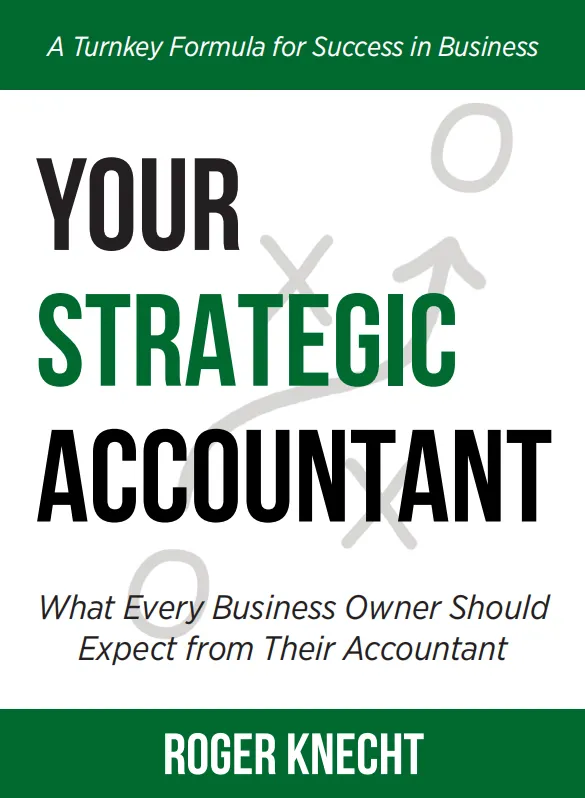Getting your LLC accounting in order has many benefits. Not only does it help with bookkeeping for an LLC and taxes, but it’ll also bring peace of mind. Additionally, if you’re someone who isn’t detail-oriented, having organized financial records and accounting for an LLC can be helpful for budgeting and business projections.
Key Benefits of Registering as a Limited Liability Company (LLC)
An LLC includes the features of a sole proprietorship, a partnership, and a corporation. The LLC, therefore, presents itself as the most flexible business structure. As opposed to a sole proprietorship, an LLC protects the individual from debts and lawsuits. When filing taxes, a single-person LLC can file taxes as a sole proprietor or as a corporation. Alternatively, an LLC with multiple owners can file taxes as a partnership or corporation. For example, if you’re looking to start an LLC in Florida please make sure to familiarize yourself with the local laws.
LLC Accounting Basics and Laws:
Does an LLC need to open a business bank account?
Laws mandate LLCs to open a bank account. Consider the following when deciding on the bank:
- What type of LLC accounting best meets your requirements?
- The fee charged by the bank.
- Choice of online/in-person services offered by the bank.
- Network of branches of the bank in the area of the business’s operations.
The types of accounts that need to be opened include:
Business Checking Account – For the business to receive customer payments and pay business expenses.
Business Savings Account – For the business to save a part of the income for tax obligations and unforeseeable business expenses.
Why is it important to separate personal and business finances?
Separation of personal and business finances is vital. Business expenses should not be made from personal accounts and vice versa. Also, don’t transfer funds from the business account to a personal account. Separation of finances helps in consolidating business income and expenses in one place and makes it easier to calculate the business’s tax obligations accurately. One could also enroll in formal accounting/bookkeeping classes to learn the basics of LLC accounting method and uplevel entrepreneur LLC.
Universal Accounting Center’s Professional Bookkeeper™ Certification Program (online) addresses the growing demand for skilled small business bookkeeping, LLC bookkeeping, and accounting professionals. Attaining this designation signifies proficiency in applying accounting processes within small to mid-sized businesses, showcasing expertise and dedication to delivering quality service. Whether aiming to specialize in this field or advance an existing career, exploring the Professional Bookkeeper™ Program is a worthwhile investment.
Your business is an asset. You should know its value and understand how to maximize it.
What are the options in the choice of accounting methods for limited liability company accounting?
LLCs can choose to follow one of two options as the LLC accounting method:
- Cash accounting – In this method, income is recognized and recorded when money is received. Likewise, expenses are recognized and recorded when money is paid.
- Accrual accounting – Here, revenue is recognized and recorded when earned, not when received. Also, an expense is recognized and recorded when incurred, not when paid. The drawback of this accounting method is that it does not give a true picture of a business’s cash flow. On the other hand, it provides an accurate picture of its income and expenses during a specific duration of time.
Whatever methods of accounting for LLC the business chooses, the business will need to stay with it for all future tax filings.
LLC Bookkeeping – How to do bookkeeping for LLC ?
LLC Bookkeeping is the tracking and recording of the business’s income and expenses. Limited Liability Company accounting must be done diligently to accurately track the business’s finances, prepare correct financial statements, and file correct tax returns. Depending on the size and maturity of the business, the available options and method of accounting for LLC include:
- In-house bookkeeping – Typically, in-house bookkeeping would not be required for early-stage businesses or bookkeeping for single member llc. For single member LLC record keeping, maintain records of financial transactions, tax documents, contracts, and licenses for legal compliance and financial transparency in single-member LLC.
- . Organize and update these records regularly to ensure smooth business operations and facilitate potential audits or transactions.
- As the business matures, it may decide to hire a team of bookkeepers to record the firm’s financial transactions. In-house bookkeeping, invariably, works out to be the most expensive option.
- Outsourced bookkeeping – This bookkeeping method could be done by hiring a part-time bookkeeper or by subscribing to an online bookkeeping service. Businesses could consider services such as Insights Officer from PwC.
How should business expenses be tracked?
IRS stipulates and provides a detailed list of business expenses, income earned, and payable taxes that need to be tracked and recorded. The important ones include:
- Business receipts for office supplies, work-related travel expenses, etc.
- Bank statements
- Bill for office utilities, internet/telephone expenses, etc.
- Invoices
- Financial statements
- Payment proofs
- Tax returns
IRS regulations also stipulate the length of time that each of the different types of records needs to be maintained. The length of time that the documentation needs to be stored varies depending on the type of financial record. Businesses have the option of choosing physical documentation or a cloud-based service.
Can an accountant set up an LLC?
Yes, accountants can set up an LLC for themselves, leveraging their expertise in business structuring and tax planning to establish a solid foundation. Additionally, Universal Accounting Centre offers tailored business running solutions and business accelerators, empowering accountants with tools and strategies to optimize operations and accelerate growth in their newly formed LLC.
Your business is an asset. You should know its value and understand how to maximize it.
What are the options available for the business to receive payments?
In addition to the traditional methods of cheque/direct deposits, other options available to the business for receiving payments are:
- Online payments – Online receipt of payments helps in the faster clearance of invoices. If the business has opted for cloud-based accounting software, the software would normally be integrated with an online payment tool to manage the business’s payments.
- Automated invoicing – To simplify their invoicing processes, businesses can opt for an automated invoicing system. Most cloud-based accounting systems integrate this feature for recurring invoices.
How should the LLC’s payroll be set up?
Setting up payroll is essential for any business that employs staff. The employees of the business need to be appropriately classified as permanent employees, contractors, part-time employees, etc. After the staff has been classified, the business must design the payroll by factoring in the different financial regulations specific to the different classes of personnel. Insights on payroll management from ADP are a useful source of information. One could also find other reliable resources on the subject.
What are the tax obligations of an LLC?
LLCs are bound by law to comply with tax regulations at the federal and state levels. The leadership enrolling in a course to learn the basics of preparing tax returns will help adhere to compliance requirements. The taxes that the LLC needs to pay include:
- Income tax – Tax to be paid on the income earned by the business.
- Employment tax – Federal Insurance Contributions Act (FICA) mandates LLCs to pay employment tax, including contributions towards social security and medicare.
- Sales Tax – This tax varies depending on the state in which the business is based.
Also, to manage its accounting for LLC the business can decide to either hire or consult with a professional business accountant.A trained business accountant can advise the business on the appropriate legal structure for LLC accounting, tax-related obligations, and financial strategy and oversee financial reporting.
LLC Accounting plays a critical role in running a business by helping track income and expenses and enabling statutory compliance. It also provides the business’s management and investors with the financial information required to make informed business decisions.
Author Bio:
Matt Horwitz is the founder of LLC University, a website that teaches people how to form LLCs. Matt is the leading authority in LLC education and is featured in CNBC, Yahoo Finance, Entrepreneur Magazine, and the US Chamber of Commerce. Matt holds a Bachelor’s Degree in business from Drexel University with a concentration in business law. LLC University®, established in 2010, was the first company to create free LLC courses in all 50 states.














